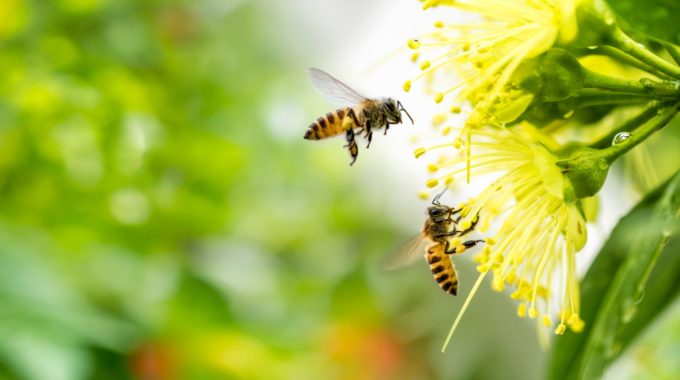Blessed bees: celebrating our pollinators
Happy World Bee Day! It’s a good time to be a bee right now. While bee populations have been declining rapidly in recent years, the COVID-19 lockdown and its resulting reduction in air pollution has allowed bees to thrive. With less pollution in the air, bees can smell the scent of flowers better, which makes it easier for them to find plants that need pollinating.
With regular council works out of action, roadside verges around the world have also been left uncut. This is allowing bee-friendly wildflowers to grow freely. Fewer cars on the road have also been good news for bees. A recent Canadian study estimated that up to 24 billion bees and wasps are usually killed by road vehicles every year in North America alone.
Nurturing our pollinators allows plants to grow and provide us with food. In fact, the majority of our plant species need bees to reproduce. Albert Einstein once famously said: “If the bee disappeared off the surface of the globe, then man would have only four years of life left. No more bees, no more pollination, no more plants, no more animals, no more man.” So it’s nice to know that bees a getting a lucky break right now.
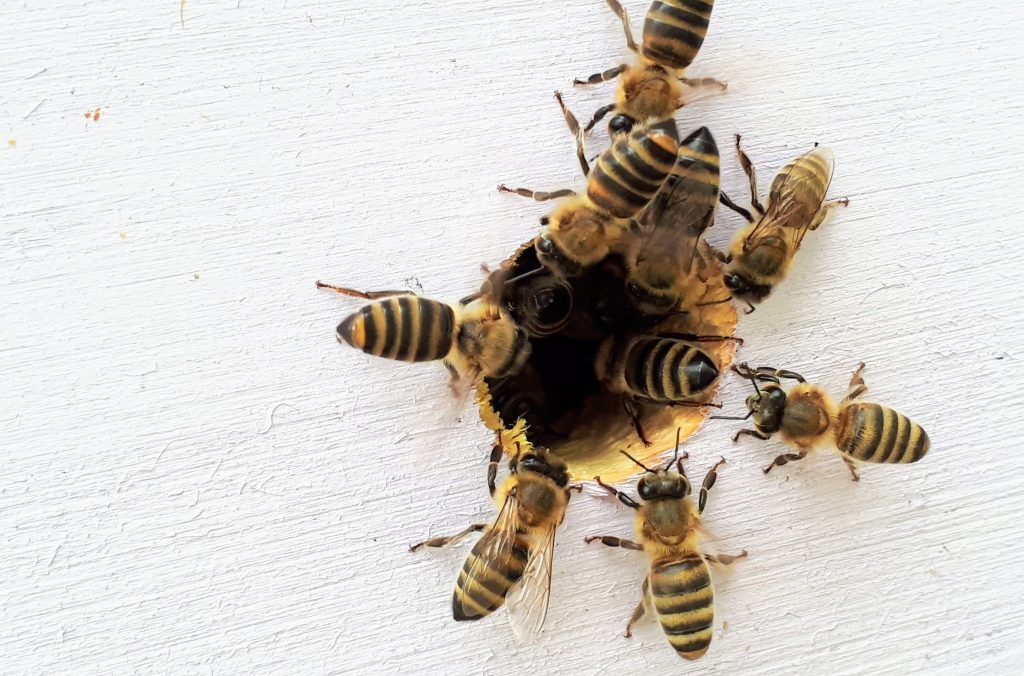
Bee the teacher
“Without bees, the world would be a very different place to the one we know,” says beekeeper Jack Stone from Bee One Third, a Brisbane-based beekeeping enterprise. “Without their pollination, we would lose over 140 fruits and vegetables, nuts and seeds.
“Bees have a lot to teach us. They can play a big role in the way we see the world. They do this merely by opening our eyes to how important they are.”
To celebrate World Bee Day, we share some buzzworthy ways to learn more about beekeeping and the importance of bee populations for our ecosystem in Queensland.
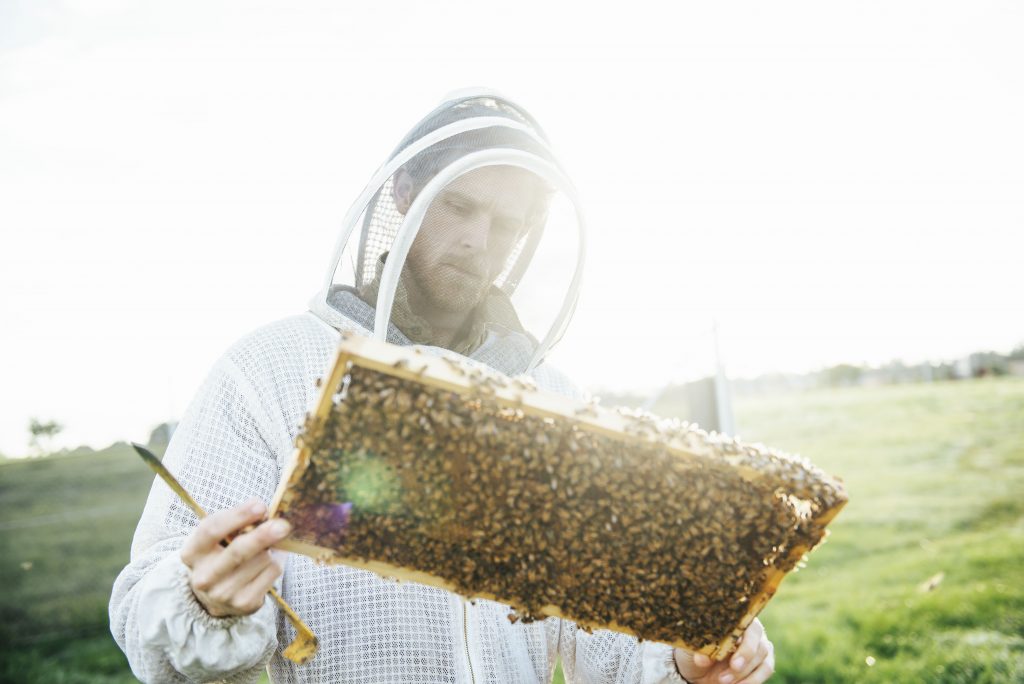
West Village: buzzing with bees
West Village is home to four rooftop beehives, producing 160 kilograms of honey each year. Stone, who installed the hives at West Village and other Queensland businesses like Hutchinson Builders and The James Street Precinct, says businesses play a vital role in growing bee populations in urban areas.
“Businesses like West Village are helping contribute to the local bee populations by not only hosting and housing bees on the rooftops of their precincts; also by planting a diversity of bee-food throughout these venues,” he says. “This adds to the necessary food supply for the year-round health and wellbeing of our local bees.”
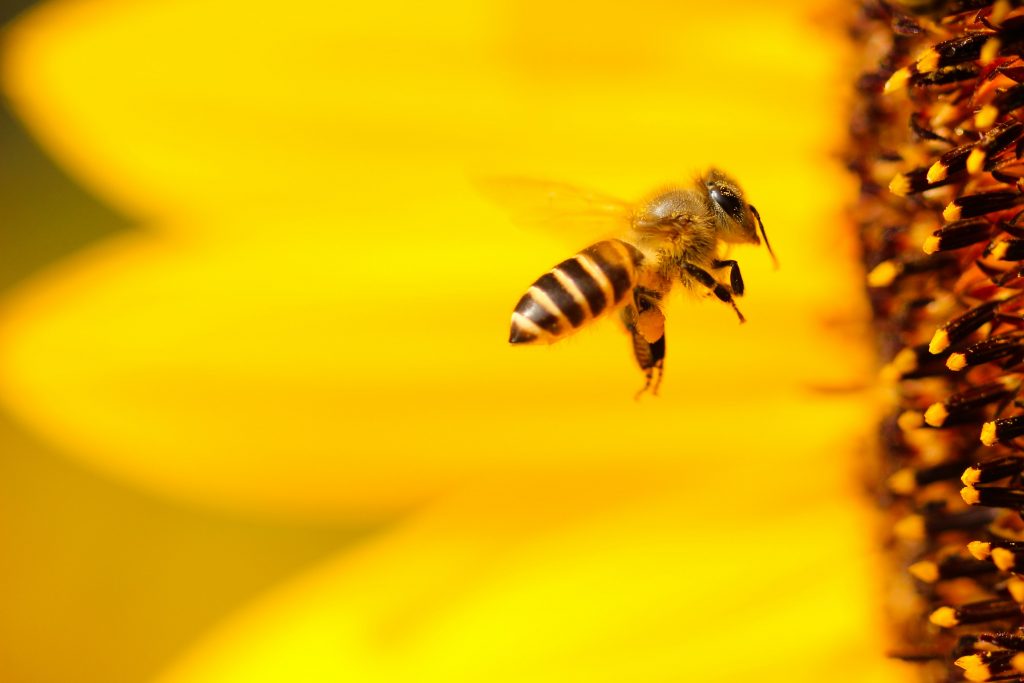
Australia Zoo’s healing hives
Queensland’s iconic Australia Zoo uses a glue-like product called “propolis” from their 30 onsite beehives to help treat injured sea turtles at the Australia Zoo Wildlife Hospital.
Crikey! Magazine’s Luke Reavley says native bees are especially important to the environment. While it’s possible to harvest small amounts of their honey, the zoo currently doesn’t. They choose instead to use the propolis for its natural healing properties.
“We do occasionally harvest the propolis,” Reavley says. “This is a mixture of beeswax and resin used by the bees to construct the inside of their hive. The propolis has anti-bacterial, anti-fungal and anti-viral properties. We use it to make a paste to aid in the treatment of sea turtles admitted due to boat strikes at the Australia Zoo Wildlife Hospital.”
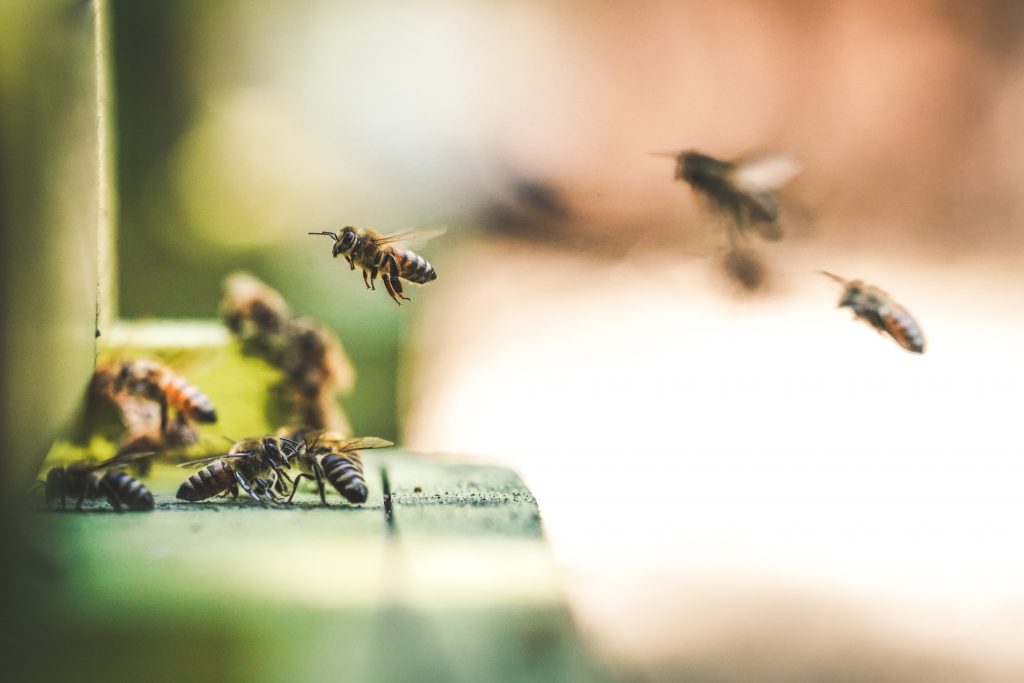
Taste the Sunshine State’s golden nectar
If you build it, they will come. Which is exactly what some Queensland restaurants and hotels have done by incorporating their own rooftop hives to supply honey to their kitchens. Not only is this great for the environment and local bee populations; it also means you can sample some of Queensland’s sticky goodness in the restaurants below the hives.
Beachfront favourite Burleigh Pavilion on the Gold Coast has recently installed beehives on the venue’s rooftop. Here, the bees not only make delicious honey for use in desserts and cocktails made in the restaurant; they also help pollinate the native plants in nearby Burleigh Head National Park. The Pullman Reef Hotel Casino in Cairns also dishes up tasty delights using honey harvested from their rooftop hives.
The Quandamooka Yoolooburrabee Aboriginal Corporation (QYAC) on Minjerribah (North Stradbroke Island) gathers honey produced by native bees just as their ancestors before them did. But you don’t have to trek offshore to savour this premium honey. QYAC provides the sweet nectar to restaurants at The Star venues across South East Queensland.
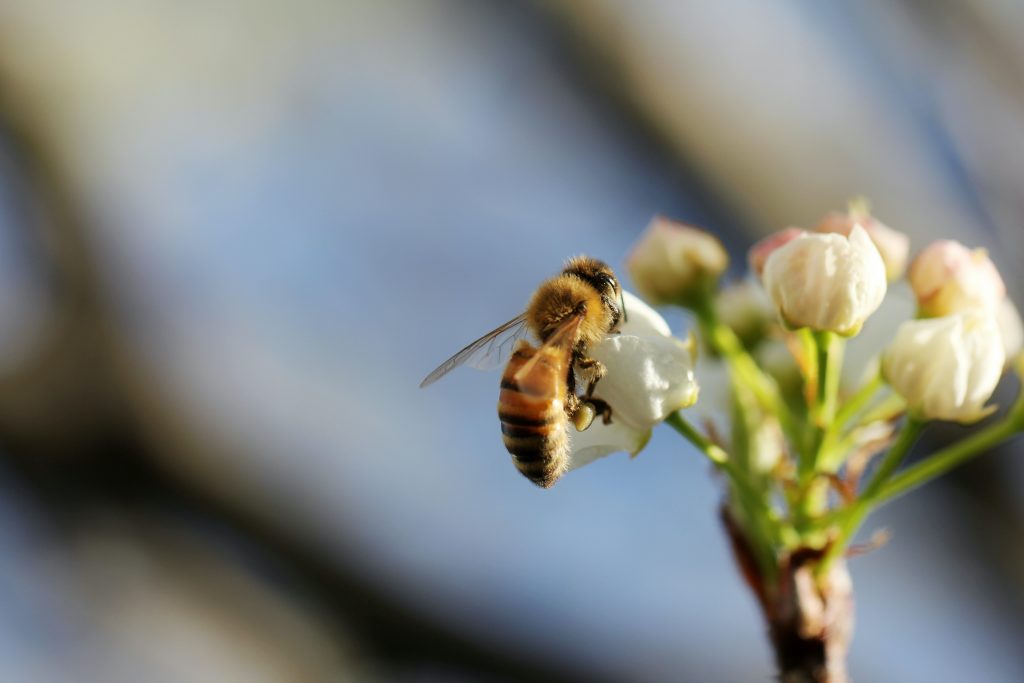
Beginner beekeeping courses and workshops
Once it’s safe to travel again (not long now!) you might want to check out these hands-on bee experiences in Queensland:
The Ginger Factory on the Sunshine Coast runs live bee shows and tastings for visitors. Until it’s safe to travel again, check out their beekeeping demonstration video on Facebook.
Book in for a beginner’s beekeeping course at Honey House Kuranda. You’ll learn firsthand what it takes to manage and care for your hive of important little pollinators.
Little Bee in the Scenic Rim runs kids and adult workshops on native bees in their Secret Garden. The workshops cover a range of topics from an introduction to native bees to bee hotels and how to plant a bee-friendly garden.
In a bid to protect our pollinators and promote local honey producers, the Ipswich Visitor Information Centre welcomed a colony of native bees in 2019. It hopes to host workshops and bee talks once restrictions lift.
Queensland’s un-bee-lievable destinations and experiences will be ready and waiting for you when you’re able to travel safely again. For info on travel to Queensland and COVID-19 updates, head to the Tourism & Events Queensland info page. For more on bees, check out this guide to backyard beekeeping, and this advice on building a bee-friendly garden.


